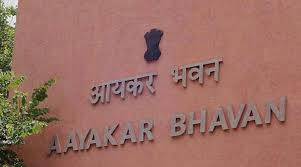 The Reserve Bank of India (RBI) on Thursday launched a website from which anyone can obtain information regarding entities that are allowed to accept deposits, lodge complaints, and share information regarding illegal acceptance of deposits by unscrupulous entities.
The Reserve Bank of India (RBI) on Thursday launched a website from which anyone can obtain information regarding entities that are allowed to accept deposits, lodge complaints, and share information regarding illegal acceptance of deposits by unscrupulous entities.
Named Sachet, the website is expected to be helpful in coordination between regulatory authorities and law enforcement agents throughout the states so any unscrupulous money-raising activities can be curbed. Collective investment schemes (CISs) have come under the scanner and the regulators, particularly Securities and Exchange Board of India (SEBI) has cracked down on such activities after millions were duped by Sahara, Sarada, Pearl Agro, and such schemes.
Launching the website, RBI governor Raghuram Rajan once again warned the public not to fall prey to phishing emails that solicit money from unsuspecting people, in return for a fortune. Phishing is the activity of tricking people by getting them to give their identity, bank account numbers, etc over the Internet or by email, and then using these to steal money from them. “Please don’t fall prey for these fly-by-night operators who promise you the moon,” Rajan said. “Every day I get five or six such emails asking me the money I apparently promised … Reserve Bank does not give money. I don’t give my money to anyone,” Rajan said. The RBI governor stressed the need to stop such crime in progress and sites like Sachet will help curb that, Rajan said. Sebi wholetime member S Raman said the markets regulator has almost eliminated illegal CISs and complaints regarding these are now a trickle.
“The push factor behind these schemes was the agent commission. We have found that 30-35 per cent as agent commission was being given. And of course, legal loopholes were exploited too,” Raman said.
“The push factor we brought to the notice of the standing committee of the Parliament, which has recently submitted a report for a new legislation to the central government. One of the factors they have accepted is the existing of this push factor. And now, very soon, if the legislation is passed and when it is passed, commission of anything more than 3-5 per cent of any types of raising funds in this country will be deemed illegal,” Raman said.





